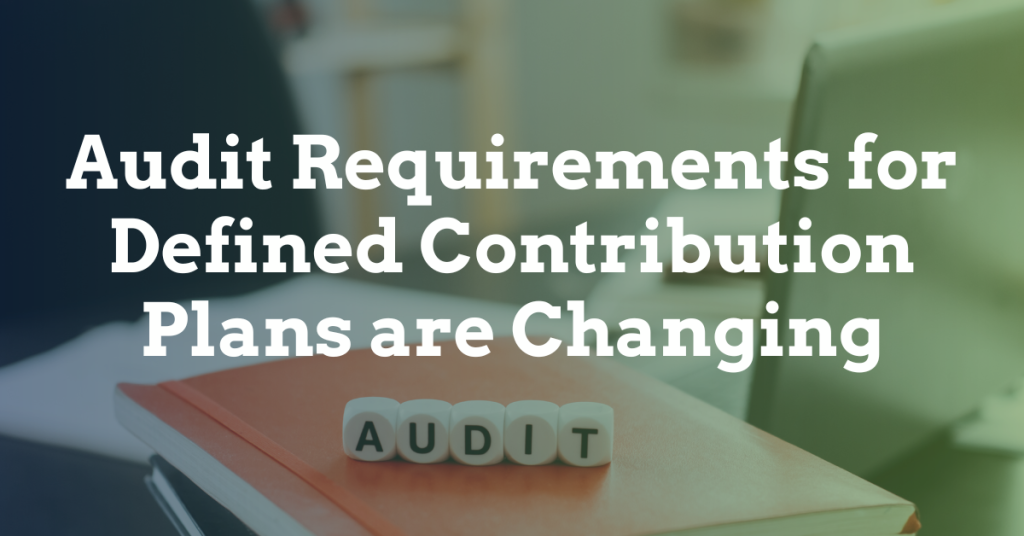There is some exciting news, especially for smaller plan sponsors of defined contribution plans. The Department of Labor (DOL) has revised the Form 5500 and instructions for 2023, bringing about a substantial change in the criteria used to determine the requirement for an audit.
Updates to Participant Count Methodology
Employee benefit plans that filed as a large plan in the prior year are required to have an independent audit of the plan if they have over 100 eligible participants. Historically, this number of eligible participants was based on the number of participants who were eligible to participate in the plan, regardless of whether they actually had an account balance in the plan.
Starting in 2023, the count for defined contribution plans is determined based on the number of participants who had an account balance in the plan. Other plans, such as defined benefit plans and health and welfare plans, will still be required to use the old participant count methodology.
This change was made to reduce the administrative cost for smaller plans and encourage more employers to offer qualified retirement savings plans to their employees. The DOL has estimated that up to 20,000 plans now will no longer need to be audited.
What You Can do Today
In light of this new rule, employers with defined contribution plans should evaluate the makeup of their participant accounts. Plan sponsors are allowed to adopt a “force-out” provision in their plan document that allows them to require participants to take their money out of the plan if they are no longer employed by the company and their vested balance is less than $5,000. Not only will this reduce the amount of the plan’s expenses, but it may also prevent the plan from being required to have an audit.
Thank you to our friends at Clark Schaefer Hackett for providing this valuable information. Reach out to Clark Schaefer Hackett’s employee benefit plan experts if you have any questions about your plan’s eligibility for an audit under this new rule, or if you would like to learn more about the steps you can take to avoid an audit altogether.


